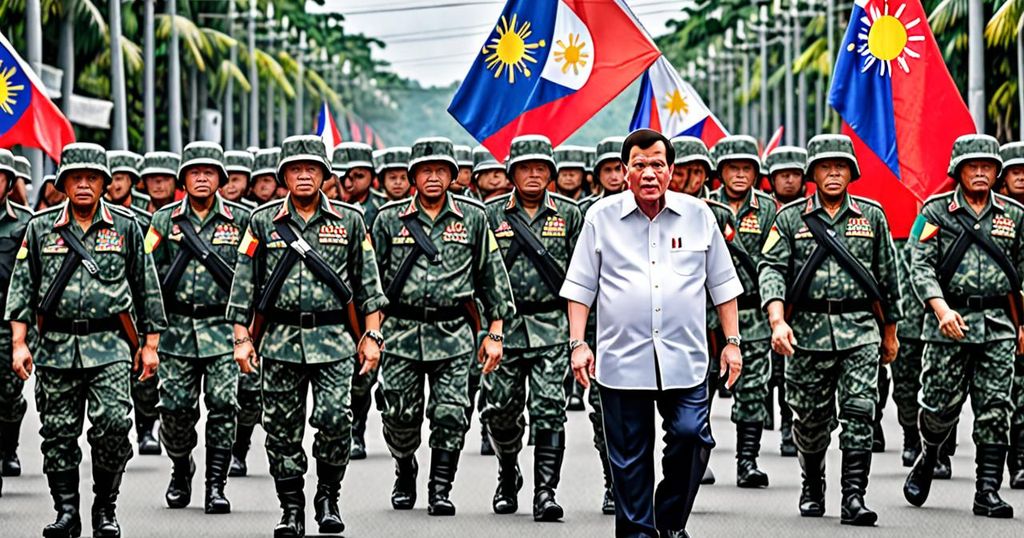The impending elections in the Philippines may still be twelve months away, but the nation is already abuzz with political maneuvering, particularly from one influential family determined to secure as many government positions as possible.
When Rodrigo Duterte ceded the presidency to Ferdinand “Bongbong” Marcos Jr. in 2022, he effectively passed the torch to the son of the former dictator of the Philippines, viewing Marcos Jr. as a means to perpetuate his own legacy. Duterte’s daughter, Sara Duterte-Carpio, allied with Marcos Jr. as his running mate and subsequently secured the position of Vice President.
The partnership, however, between these two influential yet controversial political families has been precarious from the outset and has further deteriorated as Duterte-Carpio’s aspirations for the highest office have become increasingly evident.
But Duterte-Carpio is not the only member of her family vying for political power. Just this week, she confirmed to local media that her father and two brothers are all preparing to run for Senate in the elections in May 2025.
“All of them are eager to run,” she announced on Tuesday, referring to the former President, Congressman Paolo Duterte, and Davao City Mayor Sebastian Duterte. Duterte-Carpio also disclosed that her mother has encouraged her to run for mayor of Davao City, a position currently held by her brother Sebastian and previously held by Duterte-Carpio from 2016 to 2022, and prior to that by her father for over 20 years across three separate terms before he assumed the presidency in 2016. Furthermore, Duterte-Carpio mentioned that Sebastian intends to run for the presidency in 2028, although many perceive this as a clear indication of her own presidential ambitions in the future.
The surprise declaration of the Dutertes’ political aspirations comes shortly after Duterte-Carpio resigned from her role as Education Secretary last week, while retaining her position as Vice President. Many believe that her resignation was a strategic move in preparation for a presidential bid in 2028.
The prevalence of political dynasties is not uncommon in democracies across the globe, from the Kennedys and Bushes in the U.S. to the Nehru-Gandhis in India. Yet, the Philippines is noteworthy for the extent to which a small number of families wield political influence at both local and national levels, despite the constitution’s prohibition of “political dynasties.” Should the three male Dutertes succeed in winning seats in the 24-member Philippine upper legislative chamber, it would mark one of the most significant power grabs in the country’s recent history.
While Marcos Jr.’s approval ratings have been fluctuating, particularly amid a spike in inflation last year, the Dutertes, particularly the former President Rodrigo Duterte, have been actively criticizing his administration, which has taken a markedly divergent approach compared to Duterte’s, particularly in terms of relations with China and the U.S. as Marcos Jr. becomes increasingly confrontational toward a belligerent Beijing, a position that Duterte had largely avoided.
Duterte has accused Marcos Jr. of being a drug user and conspiring to retain power in defiance of the Philippines’ one-term limit for Presidents.
The mounting challenge to Marcos Jr. and his political allies is not an idle threat. On the domestic front, Duterte, known for his Trump-like persona, left office as one of Southeast Asia’s most popular leaders, with much of the public applauding his tough stance on crime and perceiving him as relatable to the average person—despite international criticism of a brutal drug war that resulted in the extrajudicial deaths of tens of thousands, his suppression of opposition figures, and a controversial admission of sexual assault. (Remarkably, Duterte’s family gaining a stronger foothold in Congress could potentially impede investigations into his alleged misdeeds.)
Nonetheless, there are reasons to be skeptical. The candidacies of the three Dutertes are not yet official as the filing period does not commence until October, and their plans may change, considering the family’s historical volatility when it comes to political strategy. For instance, former President Duterte had filed his candidacy to run for Senate in 2022 only to withdraw his bid in December 2021.
According to Richard Heydarian, a geopolitical analyst based in Manila, Duterte-Carpio’s announcement this week is more of an affirmation of the family’s desire to retain relevance rather than a definitive blueprint of their plans. “This is kind of a desperate move, because they can see that the sharks are smelling blood, that the Dutertes are marginalized,” he tells TIME. “She wants to remind everyone that the Dutertes are still a force to reckon with.”
Indeed, the political landscape in the Philippines is set to be tumultuous as the Dutertes make their bid for multiple high-level positions in the government. It remains to be seen how this power play will unfold and what implications it will have for the country and its people.

Leave a Reply